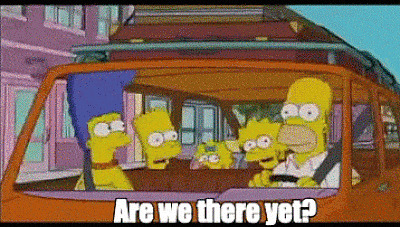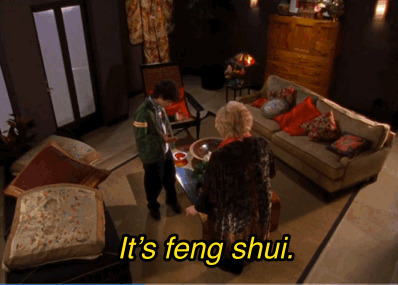#you want to see true economy of language try learning Mandarin Chinese
Explore tagged Tumblr posts
Text
I'm laughing at OP calling "Je fais du velo" (literal translation: I do of-the bike) economical, when the English translation is simply "I bike." There are many attributes I would ascribe to French, but "economy of language" is not one of them.
So I've been learning French for a while and 'faire' is actually an incredible word. Like what a fucking breakthrough in economy of language.
Faire is a verb that is usually translated into English as "to do/to make," but it covers way more actions than that, which is very confusing for new speakers. because (I have realized) that's not really what faire means.
Faire is actually a word that just gestures vaguely in the direction of the object of the sentence and goes "you know." "Je fais du velo." "Je fais du courses." "Je fais mes valises." I'm biking. I go grocery shopping. I'm packing my bags. You're just sort of pointing at a bike and going "you know, the obvious thing you'd do with it."
English: "You mean RIDE it??"
French: "Sure whatever."
Like idk I just really enjoy the concept of a catch-all verb that you can just slap onto almost anything because who fucking gives a shit, you get the idea. There's a bike. what do you think I'm going to do with it.
#you want to see true economy of language try learning Mandarin Chinese#I've been taking the duolingo french course for chinese speakers#there have been several occasions where I paused mid lesson to cry laughing#at the sheer disparity in wordcount/syllable count between the French sentence and its Chinese translation#il y a de la pluie -> 有雨#J'ai des animaux de compagnie -> 我有宠物
19K notes
·
View notes
Text
I have a (not so hidden) passion for minority languages, in particular the Celtic languages. I also have a rather unhealthy tendency to jump straight to the comments section of articles I know are going to attract certain fine specimens of brain rot (if you're ever looking for a cheap thrill, type "Irish language" into the news section of whatever browser you use and feel your blood pressure rise 10 points). I went down this rabbit hole just yesterday, and of course the same tired tropes we're all familiar with were there in full force.
Now, analyzing the real, underlying structures for this particular branch of bad faith reasoning, while ultimately the actual issue here, is just too complex and too deeply rooted in systems of colonialism and imperialism to handle in a Tumblr post. What I'd like to focus on instead, however, is one particularly insidious argument that pops up again, and again, and again, so much so that it's managed to position itself at the center of the debate despite being based on a false premise.
Go to any article and you’ll see it. “Why are we teaching our children Irish/Welsh/Basque?” UKBrexit_rule_britannia@BorisJ1945 will bemoan. “There isn’t any money at all in it!” This is the Bloody Mary of language articles; write “Gaeilge” three times and it’ll appear, smelling of roast beef and unwashed ears.
The problem with this question is that at face value, it’s hard to answer. That’s because without a bit of reflection it seems to be true. After all, learning a Celtic, or an Iroquoian, or a Siberian, or what-have-you language likely won’t ever land you a job in sales; no one’s going to be interviewing for Google using Breton (for now, at least [Hep brezhoneg Breizh epet!]). The same bad faith commenters will also argue that the opportunities that do exist (translation, teaching, careers in the media, etc.) are those meant to propagate the language, a linguistic pyramid scheme of sorts. If taken as a rational position, it is hard to argue that any of these languages are as economically viable as their more dominant counterparts.
Yet still, this still feels wrong, and if we look more closely at what these people are saying we start to see why. Basically, language is being boiled down to its economic utility. Why learn something that won’t earn you money down the line? It’s common sense, right?
Now, you could respond to this with socialist ideals; believe me, I’m all for socialist ideals. Yet instead, I’m reminded of a conversation I once had in college, and what went wrong in that conversation seems to apply here as well. At that time, I lived in a close-knit dorm with a group of math majors, which was just as unfortunate as it sounds. These math majors, who to me at least seemed to act in a sort of hive mind, once said that global linguistic diversity was more of a hindrance than anything else, and that it would make more sense (or at least be more efficient) to eliminate all the world’s languages and replace them with one, international language. That language, of course, just happened to be English.
And there’s the rub, isn’t it? When asked if they would theoretically consider switching to languages like Esperanto or Mandarin Chinese, their response was that that would be impractical, that English was the dominant language and that it was going to stay that way. The idea that their language, their way of thinking, could one day become extinct was too frightening, too unthinkable for them to even humor. Even if they had answered yes for the sake of the argument, I think in a real world scenario their response would have been a little less motivated by efficiency and reason.
Rationally, the idea of replacing one language with another should not be a scary thought. Yet it is a deeply unsettling idea, one that often bring out the worst impulses in people and cultures. It is also a concept that most English speakers rarely have to consider. Not that the idea is completely foreign to them; for example, look at the horrible racism speakers of Mandarin and Spanish face across the English-speaking world, partly because their language (and therefore their way of life) is perceived as a threat. Economically, both Mandarin and Spanish could make more sense as the international language of business; they are the two languages with the most native speakers in the world, both represent economies that are playing larger and larger roles across the globe, and in the case of Spanish, its pronunciation is more accessible than other European languages (certainly more than English). Yet the vitriolic, racist “great replacement” theories that these language communities are met with act as grim proof that issues of language strike nerves that run far deeper than its use in commerce.
This is because language is so much more than just a tool. Trying to make rational, economic decisions about a community language will not work because language exists outside of these metrics. Language is as mundane, crass, and mercenary as it is beautiful, sophisticated, and sacred, and our relationships to our languages, be they our native tongues or ones we’ve picked up along the way, are so intricately tied to our relationships with ourselves and our surroundings that it is impossible to distinguish one from the other. The thought that the languages we speak in, think in, love in could one day disappear is enough to make most of us begin to shudder. People still study Latin in high school; maybe 500 years from now, niche groups will speak what we now know as English together over card games. The minority languages being targeted now, however, are living, community languages, languages that people use daily and want to pass on to their children to secure their future. It is an insult, and a gross misunderstanding of the role language plays, to try and put a price on them.
The Breton phrase I gratuitously quoted above (Hep brezhoneg, Breizh epet) translates to “without Breton, there is no Brittany.” In Ireland, a phrase commonly used at language rights events is “tír gan teanga, tír gan anam” ��� a land without a language is a land without a soul. Language is our soul — and what, exactly, is the cost of that?
53 notes
·
View notes
Text

by Connie Khong
Growing up in a non-typical Chinese household, Chinese New Year always bring about different meaning to me. Why is it different? Because in the eyes of most Chinese in Malaysia at least, I am considered a ‘banana’. It means I’m yellow on the outside and white on the inside. In other words, I only look the part - but inside, I’m not the least bit.
I still speak a sprinkle of Hokkien in my household. And I speak Penang Hokkien so our Hokkien, similar to our cousins in Malacca, is smattered with Bahasa Malaysia. Except unlike a big percentage of my Chinese counterparts, I don’t speak the common Mandarin or the lingua franca of Kuala Lumpur : Cantonese fluently.
Thankfully, my late Papi's’ family is of Hakka-Cantonese descendents and accompanied with TVB dramas growing up, I ended up picking up a bit of Canto here and there. Not the best since I don’t speak it as much, but I can still order some food or drinks and attempt some bargaining at the resident kopitiam - teh c ngalat, mm koi!
I didn’t think my Chinese New Year or me not able to speak Mandarin makes me any less Chinese - until I got older and hung around with other Mandarin-speaking friends. It was only then it came to my realisation that I am a bit different because I lack the ability to read, write and speak the so-called common language and that also meant, there is a whole universe I couldn’t access - which is apparently the license to be true Chinese. Nevertheless, I tried not to let these things bogged me down or define me - after all we still held some traditions or must-do things and practices which still hold dear to me - as a true blue Chinese or not.
So here are some things I do know about Chinese New Year!
1. Apa tu makan besar Chinese New Eve?
- Similar to your malam Raya, this homecoming dinner is THE essence of the storyboards you see in most of the Chinese New Year ads. Everyone will gather once a year to catch up with each other. Even if you don’t talk throughout the 365 days, it’s definitely NOT fine to skip the reunion dinner (don't be disrespectful to the food!). This is where the ‘how are you’, ‘when are you getting married and when are you having kids’ questions will be bombarded. But really, whether you’re true blue Chinese or a yellow banana, this means family quality time of coming together - of homecoming. Which is why the dinner is known as reunion dinner, 团圆饭 (tuan yuan fan).
Over the years, I am learning more important vocabulary because it carries much meaning to the things I celebrate and helps me connect with it better - with my roots and to appreciate it all the more.

2. Pantangs are real!
- Well, I’m a second generation Christian and honestly, most pantangs don’t or shouldn’t really apply lah. For your infomation, second generation Christian means that your parents are the first to believe in the household and you’re the second to follow after them. Well, for my household, more than beliefs, it has been customary that we keep to making sure
a) we have lots of red things in the house
b) spring clean wayyyyy before the 1st day of Chinese New Year and that means
c) not sweeping the floor especially on the 1st day (my late Papi insisted on it but my mother cheekily suggested to vacuum this one year when she forgot to spring clean the few days before)
d) putting the (fake) plum blossoms or any other spring items and decorations up
e) the word ‘fuk’ is placed upside down at the door or walls.
3. The upside down ‘Fuk’
Hahaha, nope, not THAT F word but fuk 福. I may not be able to read a lot of Chinese characters because I’m a Kebangsaan kid since primary - but this is one of the few that I know by heart. We will place it upside down and not right side up to invite all the fortune, luck and happiness into the household and then, pour it out to all the guests that enters and leave the household. Another reason why I remember it is because it’s also the same character used for Hok in Hokkien.

4. Khong Family CNY Signature Dish
- Not all family serve the same food you know? Like how we have different versions of Laksa, different household serve different must-have dishes : special to that group. For example, Jiu Hu Char (Stir fried yambean with dried cuttlefish) is a must in my Hokkien household and because we have our Hakka grandmother on my late Papi’s side, we also serve these gorgeous Kau Bak or Khew Yuk : Hakka marinated 5 spice pork belly, steamed with round yam. They are sooooo good - our go-to signature Khong CNY dish!
We would plan what to prepare for Eve, First Day and back then when my Papi and his parents were still around, the 2nd Day family lunch as well. Usually First Day are more vegetarian friendly - because we have had so much meat on the Eve and for the religious ones, they will observe 1st and 15th of the month as vegetarian days so it’s only apt that we try to incorporate more vegetable options as well.
And food have good meanings to them as well - onomatopoeia! So, it’s really common to find Mandarin oranges, pistachios, fish, and certain vegetables like mushrooms because in their Chinese pronunciations, they sound like words that means happiness, gold, prosperity, luck and the likes. That’s why they are a must-serve during Chinese New Year and even more on other auspicious days for the Chinese community like weddings!

5. Red Packets - angpow mana?
- Contrary to popular beliefs, not everyone gets angpow and not everyone gives. The golden rule of thumb, is that if you’re married, then you have to start giving. Because it means, you’re finally an adult and is able to pass on the (financial) blessings to others - especially the younger ones. Well, the amount is up to you - but it really depends on the economy (nowadays, the minimum has increased from the heyday of RM2 per couple or per pax to about RM5 or RM10 these days) but, to be honest, it’s the thoughts that really counts. And while married couples generally don’t receive, their parents still can give to them if they want to. While unmarried older relatives can give money, they don’t put them in red packets. Then there are some practices where the younger but already working siblings will give to their older siblings as a form of respect. Though this is not as common, it’s being practiced. But generally, any older relatives can start giving - and yes, even you - the twenties and thirties year olds, if you’re working and if you have younger cousins or nephews and nieces, you can give them as well. Just don't put them in red packet if you’re not married yet.

6. #OOTD: Colour to wear
- The obvious colour would definitely be red! But anything that represents prosperity, money, luck is good too. So colours like gold, orange (because in Chinese pronunciation, it means gold), green and blue. If these colours are too strong for your liking, you can even opt for pink and salmon. Contrary to popular belief, we don’t all wear cheongsams or samfus during the celebrations anymore. It’s not really a common practice but it's still fun to put it on for the occasion! While most people these days are not as superstitious, to be safe, black and whites are a no-no as they are seen as inauspicious and related to funerals.

7. Balik kampung time!
It’s a common practice for the community to travel or make their way back to their hometown. I believe it’s the same for most of our non-Chinese friends when it comes to their day of celebration. I mean, it only makes sense to head back to where your grandparents and extended relatives are at - and for some, where you grew up in. If you’re married, you would have to follow your husband to celebrate 1st day at his parents’ place and only to return on 2nd day to yours. It's really all about planning so you can celebrate with each other’s family.

8. WIND AND WATER
And this brings me to my 8th (which also sounds like fatt (prosper) in Cantonese) and last point. It’s apt for me to end with feng shui - synonym to all things superstitious Chinese. And how specific dates bring extra ong and huat to you (dates to get married or return to work, hoi gong in Cantonese) in hopes that choosing a good day to do things, it will make everything go well.
For others who believe in feng shui and the likes, the zodiacs and fortune telling is also another important thing to start the year with. Some say if your zodiac is the zodiac year or is against the Taisui (something like a guardian God overseeing people’s fortunes) for that year, you’re going to have a very tough year ahead.
So yes, that wraps up a few of the things I know. I am still trying to learn and reconnect with things that most, if not all, Chinese that still practices even up to this day. And to me, the most important thing is family and homecoming. That’s really the essence of Chinese New Year which lasts until the 15th with more mini celebrations in between such as Everybody’s Birthday (Yan Yat) on the 7th and pai ti gong by the Hokkien community on the 9th and the end of it all, Chap Goh Meh on the 15th night where the singles will head out to the river/seaside to throw oranges with number in hopes to find their potential partner.
So, join us welcome the new year in the lunar/Chinese calendar. And no, for the last time, you can be a Christian / Muslim / Buddhist etc and still celebrate Chinese New Year because you’re still CHINESE.
From all of us at Kekabumi to your family, we would like to wish you a Huat-derful Chinese New Year and may this year brings you lots of joy and prosperity!
2 notes
·
View notes
Text
China and Real China - Project #2
I have diagnosed myself with “China Withdrawal Syndrome.” It is the only way I can really fathom the sense of homesickness, feeling like something is missing, sadness, and never-ending orders of Chinese takeout that I am experiencing in my day-to-day life. Having spent a total of 6 weeks in China in my 17 years of life on this planet, it’s impossible to ignore the mark that those six weeks have left on my heart. I recall right before my second trip to China, with SSC Beijing and the China Institute, I had a friend who was going to China for the first time on a trip with her school. As I was sitting on my floor packing clothes for a month living 37°C summer weather, I was excitedly texting her as she was awake with nervousness and excitement for her 14 hour flight the next morning. I was going through with her some of the more “culture shock” moments I experienced in China my first time there (squat toilets with no toilet paper, and the occasional lack of soap) and some basic phrases to order food, say thank you, etc.
It was halfway through the four weeks I was living in Beijing when my friend returned to New York. We were talking to one another despite the 12-hour time difference, and she was going through a similar series of reactions and emotions regarding China that I recognized. I dare say my friend, too, has China Withdrawal Syndrome. Of course this isn’t the case for everybody — I found that the Chinese experience, even the gentrified and touristy parts, are very hit-or-miss for westerners. One person on my first trip to China said she would never go more Chinese than Manhattan Chinatown ever again. They cited differences in culture and this person did not know any Mandarin, so they felt an immediate disconnect.
There are westerners who don’t care at all about seeing true China, but only care about hitting the first-tier cities such as Shenzhen and Shanghai. Though there are definitely cultural and lingual differences between the cities, let alone western culture, it definitely seems that so many people from the western world care to see a Chinese version of western metropolitan life. Or, at the very least, are more comfortable with it. I speculate, at least, that the mixture of stories and opinions presented to the average westerner are what can contribute to the erratic responses to China.
Ideas of emperors in long robes and skinny strands of facial hair, concubines with bound feet and chopsticks in their hair, and dragons and monkeys creating a zodiac are at one end of the spectrum. On the other, it is the notion that there is an extremely corrupt government with eyes on every member of the population, censoring everything and allowing for mass killings and poverty to run the nation. The latter can be supported with the Red Guards, 10 Lost Years, and the Tiananmen Square Massacre. Then, of course, there are the stereotypes about the Chinese people. Many westerners do not realize how big China truly is, do not know that there are over 50 ethnicities within China’s borders, do not understand the government and its actual involvement in day-to-day life, and oftentimes hold a huge stigma against learning any Chinese language in fear of its difficulty.
In effect, people who don’t hold huge interests in East Asia and China go to the first-tier cities that are filled with other tourists of the same culture, from what I have noticed. You seldom hear about somebody’s time praying in the Buddhist temples in Hangzhou, or seeing the Mosque in Xi’an, but on almost anybody’s trip you can find a picture of them in Tiananmen Square with Mao’s face proudly hanging on the southernmost gate of the Forbidden City behind them. People don’t care as much, or at least don’t look into, what the real China is like. It’s impossible to generalize all of China into one idea, due to the diversity and size, however seeing rural China or even lower-tier cities are the majority of pieces in the puzzle. It makes me happy to see more and more outlets on the internet that is easily accessible to westerners that also piece the puzzle together. I feel that an honorable mention should be given to ADVChina on youtube, who’s producers and vloggers have YouTube channels of their own discussing what life in China is like: everything from getting a haircut to buying property to gas to family life. They too say in their videos that China is not the same as the first tier cities.
As somebody who has watched ADVChina’s videos to satisfy my China Withdrawal Syndrome (to little avail — I’m trying to figure out when I can return to China again), it makes me so glad that aside from those who share my passion for learning Chinese and Chinese history, there is now an audience of people who are considering going to China, for whatever reason, creating a demand for the western world to see what China is truly all about. I was lucky enough to get a glimpse into the real China when I visited Xi’an for a few days, and despite being a second-tier city, I was able to visit a place such as the Sun Village for Children of Incarcerated Parents in the outskirts and witness a far more rural and impoverished setting than that of the Bell Towers and Muslim Quarter. I encourage anyone and everyone to take a moment to understand China and its history and culture before and during visits and stays — there is always more than meets the eye. I believe that if people look beyond the stories heard on the news and the common ideas of China, the Western and Chinese cultures will establish much needed (and high in demand) connections and mutual understanding. More students will study Mandarin (and maybe even other dialects and East Asian languages), economies will benefit from the tourism or even those who immigrated to one of the other countries, and the flights lasting over 12 hours will be overlooked for the sake of reuniting with old friends and meeting new ones.
What is beautiful about all of this: it is already happening. I encourage people to be a part of the movement and to engage with all things China. Learn, educate yourself, expose and immerse yourself. If history is your thing, study up on East asian history and maybe plan a dream trip across East Asia. If language is your thing, use Weibo or apps for language learning to start networking and increase language skills. If you want to go someplace new for fun, consider China. Even if you end up only liking the first-tier cities, memories can be made anywhere in China like nowhere else. Networking is huge in China, and no matter when or where you go, a piece of China is bound to follow you wherever you go (even if you weren’t fond of your experience). I merely implore you to consider it, dip your toes in, or even just immerse yourself. China is more than that picture of people in Tiananmen with Mao behind them. It will be easier if you do know the language to experience China, and despite the lack of alphabet and the multiple tones, it isn’t impossible to pick up (literally over a billion people can do it, so can you!), at the very least some key phrases.
I leave you with this, dear reader: have a lot of audacity when it comes to learning about China, and stay adventurous. 加油!
0 notes